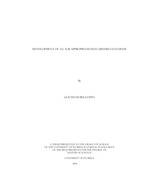

- PYTHON EMAIL PARSER GET ENCODING HOW TO
- PYTHON EMAIL PARSER GET ENCODING CODE
- PYTHON EMAIL PARSER GET ENCODING PASSWORD

The encoding specifies that each character is represented by a specific sequence of one or more bytes.
PYTHON EMAIL PARSER GET ENCODING CODE
You can Set the encoding in the code also.ī = str1.encode('utf-8', 'ignore').decode('utf-8').Let’s see the the options to set the UTF-8 Encoding (If you are using Python 3, UTF-8 is the default source encoding) Else there would be invisible characters which are not interpreted as UTF-8. Verify if the text editor encodes properly your code in UTF-8.A Standard option is to use “UTF-8” as a encode option which more or less works fine.For example – If the default is UTF-8, these would be LANG=”UTF-8″, LC_ALL=”UTF-8″, LC_CTYPE=”UTF-8″.Check the values set against these variables.

PYTHON EMAIL PARSER GET ENCODING HOW TO
You might be better off writing your own quoted-printable decoder.In this post, we will see – How to Enable UTF-8 in Python. However, it may not be wise to rely on this functionality unless your use-case is close enough to decoding of a MIME header string that you don't think it will be broken by any changes made to the library. You can vote up the ones you like or vote down the ones you don't like, and go to the original project or source file by following the links above each example. You may have to do some testing to ensure carriage returns, etc are treated correctly although in a quick test I did they seem to be. The following are 30 code examples for showing how to use ().These examples are extracted from open source projects. A demonstration: using System Īttachment attachment = Attachment.CreateAttachmentFromString("", "=?iso-8859-1?Q?=A1Hola,_se=F1or!?=") This method is also internal, but is called fairly directly in a couple of places, e.g., the Attachment.Name setter. The method appears to be used by only one method which is used to decode MIME headers. This class defines a method called DecodeBytes which does what you want. The implementation is in the internal class. There is functionality in the framework libraries to do this, but it doesn't appear to be cleanly exposed. Is there a way to remove these encoding characters? Here's an example where it occurs in a date range I want to extract: However, some emails I get are nigh impossible for me to extract dates (using regex) from as encoding-related chars such as '=', randomly land in the middle of various text fields. If part.get_content_type() != "text/plain": Typ, data = arch(None, '(SUBJECT "%s")' % subject) # typ, data = arch(None, '(UNSEEN SUBJECT "%s")' % subject)
PYTHON EMAIL PARSER GET ENCODING PASSWORD
Print 'Is the username and password correct?' Print 'Is your internet connection working?'

I am extracting emails from Gmail using the following: def getMsgs():Ĭonn = imaplib.IMAP4_SSL("", 993)


 0 kommentar(er)
0 kommentar(er)
